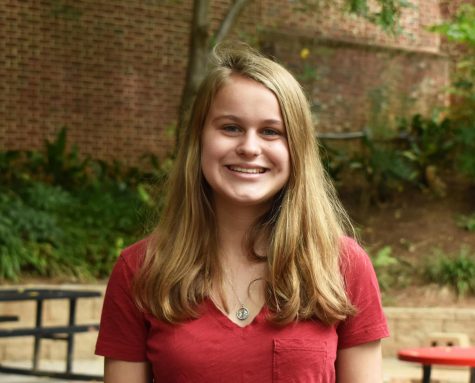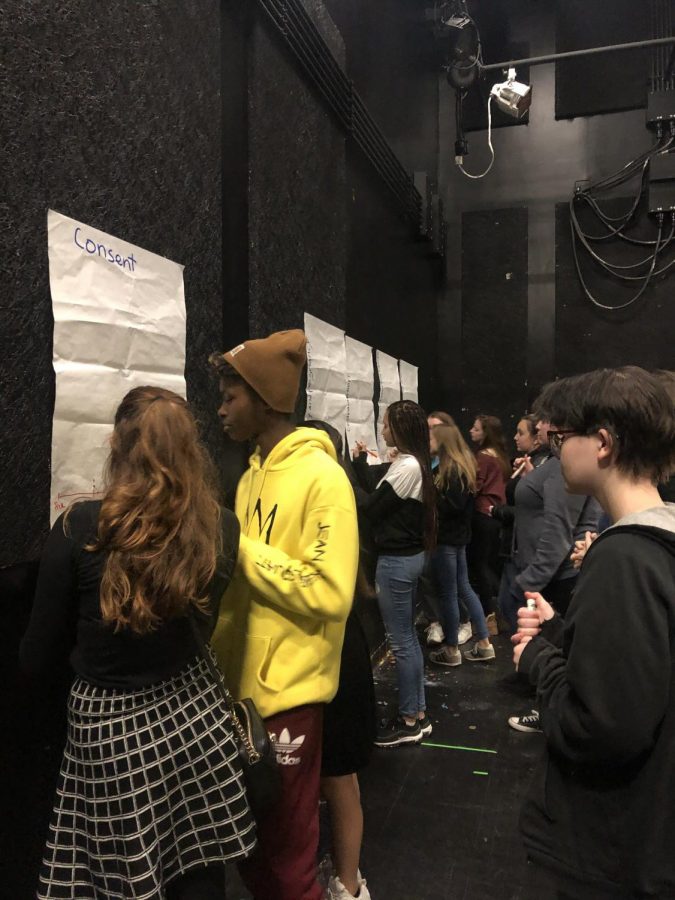500 Women Scientists hosts event to discuss reproductive justice
Students gather around posters to discuss the ages at which topics such as consent and sexuality should be discussed in school.
Abortion, access, reproductive rights. All of these concepts encapsulate the term known as reproductive justice and have been major talking points in the upcoming presidential election.
Reproductive justice was brought closer to home when GA House Bill 481 was introduced by Governor Brian Kemp in early 2019. The “heartbeat bill” limited the time in which an abortion could be performed. However, in October, U.S. District Judge Steve Jones blocked House Bill 481 from becoming law.
Reproductive justice advocates got another win when the Atlanta City Council created a Reproductive Justice Commission in mid-November. Grady’s 500 Women Scientists Club responded to the change by hosting an event with experts on reproductive justice.
“A lot of the conversation was centered around choice. Women should have the choices to make decisions for our bodies. RJ movement leaders believed we really needed to talk about access. It’s one thing to say that people should have a choice to do what they want with their bodies. It’s another thing to say that people should have access,” said Jalessah Jackson, professor of interdisciplinary studies at Kennesaw State, who attended the event.
Jackson helped to integrate high school students and teachers into the reproductive justice conversation. Students talked about a lack of proper sex education and the limited amount of gynecologists in counties around Georgia.
“I learned a lot about bills that are being introduced all over the country, both pro and against abortion/reproductive justice,” junior Emma Uppelscoten said, who attended the event. “This event made me want to do more research about laws concerning reproductive justice and also contact my representatives.”
In March, the Supreme Court will hear June Medical Services v. Gee, which challenges a Louisiana law that requires doctors who perform abortions to have admission privileges at hospitals within 30 miles of the abortion clinic. More than 200 republicans have filed a brief urging the Supreme Court justices to use the case to overturn Roe v. Wade, which made abortions legal in 1973.
With new abortion bills coming out and laws being challenged, students were able to learn about the medical reasoning behind some of the decisions.
Dabney Evans, executive director of the Institute of Human Rights at Emory University, explained her research study connecting the six-week deadline to viability. Evans explained that you can detect some part of life at six weeks with a heart monitor, so people use that as an argument for stopping abortions at six weeks. She also said that they compare fetuses in utero to other protective classes that have constitutional protections, such as African Americans, LGBTQ, etc. to further build their case.
“Having a professional talk to the group showed the impact the six-week rule has on others and how it does not give women basic rights that they should have over their body,” senior Emily Schulz said, who is a member of 500 Women500 Scientists.
The professors made sure to emphasize that things are moving in a positive direction for reproductive justice. Sister Song v. Kemp got the heartbeat bill delayed and Georgia state senator Nan Orrock helped introduce a new sex-ed bill in the Georgia legislature.
“Reproductive justice is something that’s extremely important for me to be informed about, especially as a woman and a future voter,” Uppelscoten said. “The work reproductive justice organizations are doing is super important and will become even more relevant as time goes by.”

Samantha enjoys soccer and violin, and is especially interested in science-related topics. She loves writing and is excited to be on Nexus.

